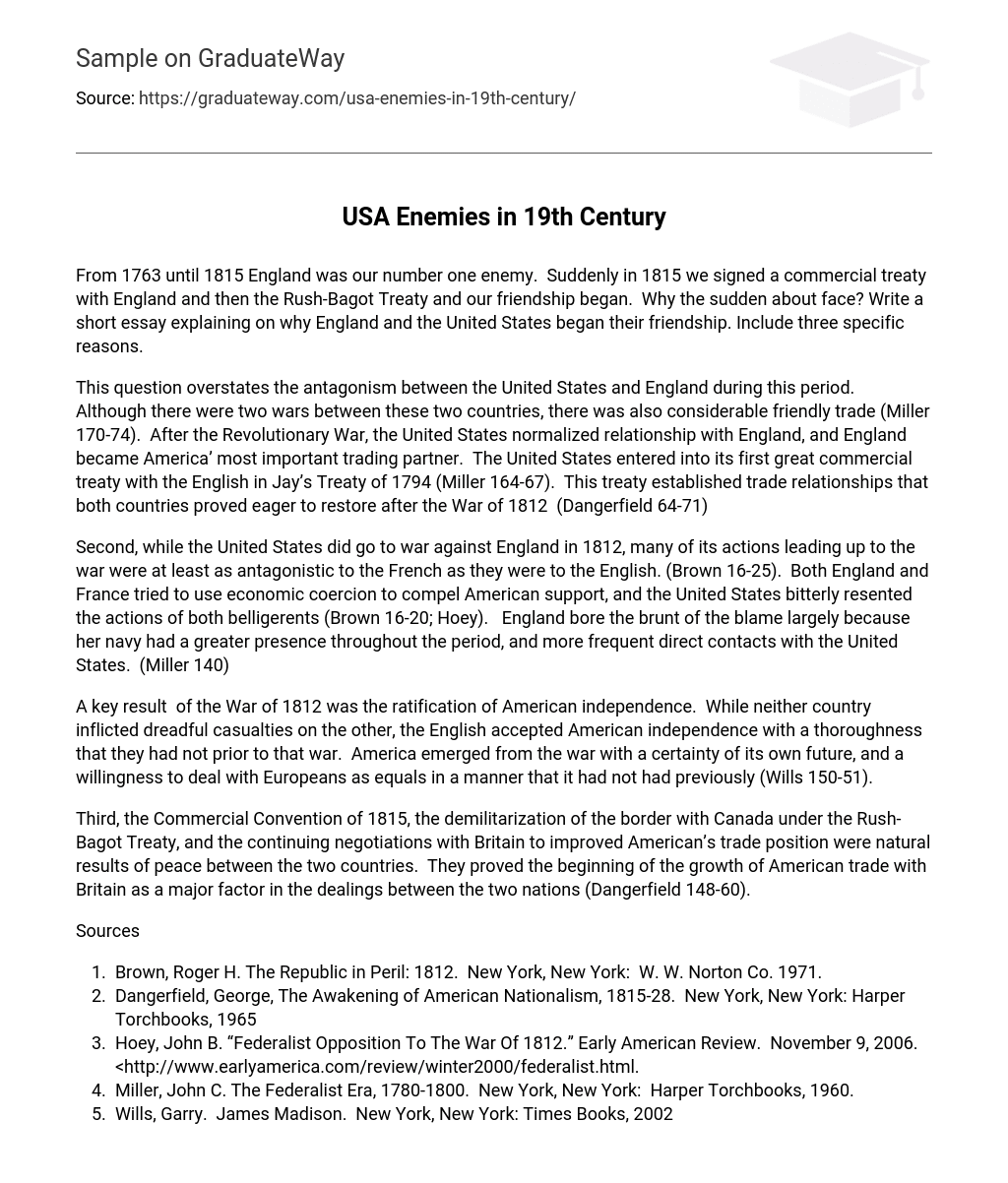From 1763 until 1815 England was our number one enemy. Suddenly in 1815 we signed a commercial treaty with England and then the Rush-Bagot Treaty and our friendship began. Why the sudden about face? Write a short essay explaining on why England and the United States began their friendship. Include three specific reasons.
This question overstates the antagonism between the United States and England during this period. Although there were two wars between these two countries, there was also considerable friendly trade (Miller 170-74). After the Revolutionary War, the United States normalized relationship with England, and England became America’ most important trading partner. The United States entered into its first great commercial treaty with the English in Jay’s Treaty of 1794 (Miller 164-67). This treaty established trade relationships that both countries proved eager to restore after the War of 1812 (Dangerfield 64-71)
Second, while the United States did go to war against England in 1812, many of its actions leading up to the war were at least as antagonistic to the French as they were to the English. (Brown 16-25). Both England and France tried to use economic coercion to compel American support, and the United States bitterly resented the actions of both belligerents (Brown 16-20; Hoey). England bore the brunt of the blame largely because her navy had a greater presence throughout the period, and more frequent direct contacts with the United States. (Miller 140)
A key result of the War of 1812 was the ratification of American independence. While neither country inflicted dreadful casualties on the other, the English accepted American independence with a thoroughness that they had not prior to that war. America emerged from the war with a certainty of its own future, and a willingness to deal with Europeans as equals in a manner that it had not had previously (Wills 150-51).
Third, the Commercial Convention of 1815, the demilitarization of the border with Canada under the Rush-Bagot Treaty, and the continuing negotiations with Britain to improved American’s trade position were natural results of peace between the two countries. They proved the beginning of the growth of American trade with Britain as a major factor in the dealings between the two nations (Dangerfield 148-60).
Sources
- Brown, Roger H. The Republic in Peril: 1812. New York, New York: W. W. Norton Co. 1971.
- Dangerfield, George, The Awakening of American Nationalism, 1815-28. New York, New York: Harper Torchbooks, 1965
- Hoey, John B. “Federalist Opposition To The War Of 1812.” Early American Review. November 9, 2006. <http://www.earlyamerica.com/review/winter2000/federalist.html.
- Miller, John C. The Federalist Era, 1780-1800. New York, New York: Harper Torchbooks, 1960.
- Wills, Garry. James Madison. New York, New York: Times Books, 2002.





